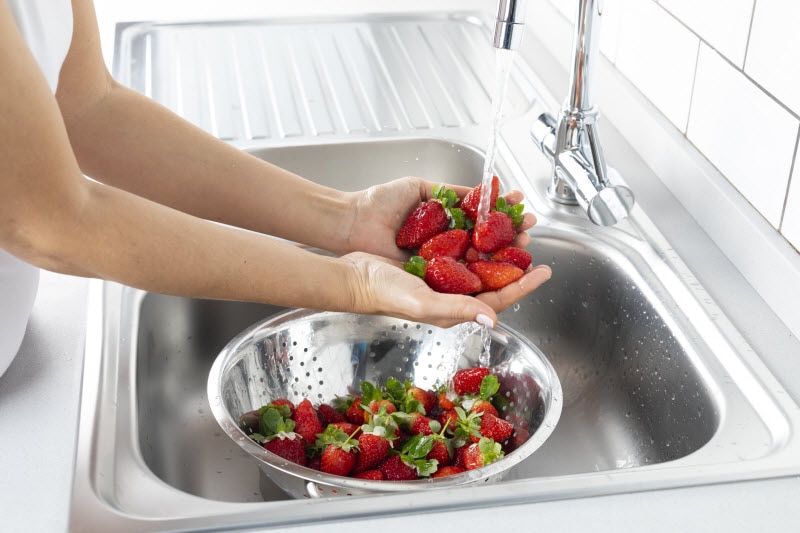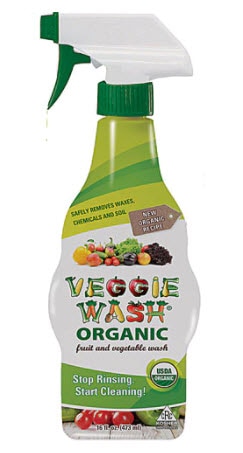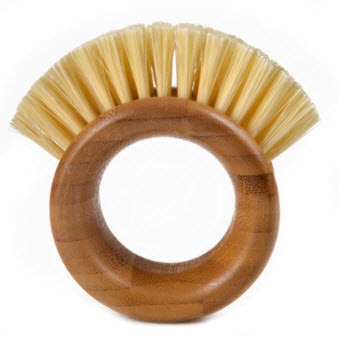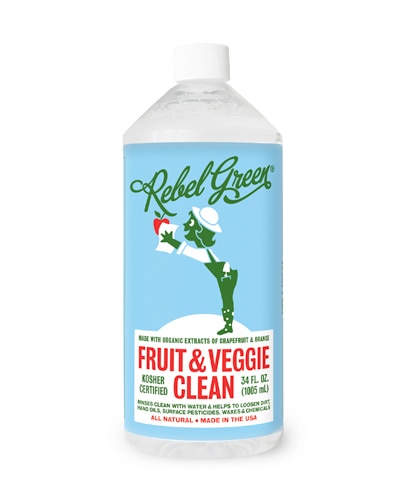Americans need to eat more fruits and vegetables. Just 10% of people get enough of these foods in their diet, according to the Centers for Disease Control and Prevention.
Now, a new report may make Americans even more reluctant to eat produce.
An Environmental Working Group analysis of federal data finds that almost 70% of nonorganic fresh produce sold in the U.S. contains residues of potentially harmful
pesticides.

The EWG says these crops contain pesticides even after washing, peeling or scrubbing. Fruits and vegetables that are fresh, canned or frozen all contain the pesticide residue.
Dirty Dozen Foods List
A "dirty dozen" group of fruits and vegetables are especially likely to contain potentially harmful pesticides, the EWG says. These foods are:
- Strawberries
- Spinach
- Kale, collard and mustard greens
- Nectarines
- Apples
- Grapes
- Cherries
- Peaches
- Pears
- Bell and hot peppers
- Celery
- Tomatoes
The pesticides in these foods are associated with health risks such as cancer and hormone disruption, the EWG says. So, should you just say "no" to fruits and vegetables?
Overstated fears?
Some nutritionists say the EWG’s concerns are overstated. In the past, the Produce for Better Health Foundation has taken the EWG "dirty dozen" list to task for "flawed methodology" and "misleading messaging.”
The federal government also says most produce is safe to eat. The U.S. Department of Agriculture tests produce through its Pesticide Data Program. In 2019, it analyzed 9,697 samples of fresh and processed foods, including fruits and vegetables.
Late last year, the USDA stated that “nearly 99%” of the samples the government tested “had pesticide residues below benchmark levels established by the Environmental Protection Agency.”
The USDA also says that both the Food and Drug Administration and FDA are "immediately notified" if a PDP test finds residue levels that potentially pose a safety risk.
Nancy Farrell Allen, a registered dietitian nutritionist and founder of
Farrell Allen Dietitian Services in Fredericksburg, Virginia, is skeptical of the EWG claims. She says the “dirty dozen” list does "more harm than good" in a nation where people do not eat enough produce.
"Information like this sets fear in the mind of consumers," she says.
Farrell Allen says the "dirty dozen" report has the potential to cause undue alarm among people who already are predisposed to avoiding produce.
"In speaking with my patients, they even fear eating canned or dried fruits and vegetables for one reason or another," she says. "This fear immobilizes people."
Farrell Allen says unjustified worries about pesticide residue are especially counterproductive during this time of pandemic, when eating more produce can keep you healthy.
"Recharging our immune system is of major importance," she says. "And nutrients that protect our immune system include vitamin A and vitamin C, which are most notably found in produce."
Other options for eating produce
Farrell Allen says her advice is to "eat all produce with confidence," arguing that there are "many more positive health outcomes" to eating produce than reasons to fear
eating fruits and vegetables that contain some pesticide residue.
However, if you are concerned about the levels of pesticides in fruits and vegetables, Farrell Allen says you have other options to store-bought produce.
"Start your own garden and grow your own produce," she says.
Other alternatives include:
- Joining a local community garden
- Signing up for a local food co-op while supporting area farmers
- Visiting area farms for "pick-your-own" opportunities
You can also purchase organic produce, but this alone is unlikely to eliminate concerns about pesticides.
"Research has shown that using organic produce in place of conventional forms does not sufficiently result in a decreased risk of residue ingestion," Farrell Allen says.
Featured products:


 The EWG says these crops contain pesticides even after washing, peeling or scrubbing. Fruits and vegetables that are fresh, canned or frozen all contain the pesticide residue.
The EWG says these crops contain pesticides even after washing, peeling or scrubbing. Fruits and vegetables that are fresh, canned or frozen all contain the pesticide residue.





